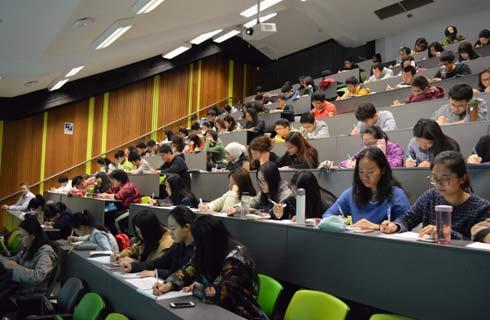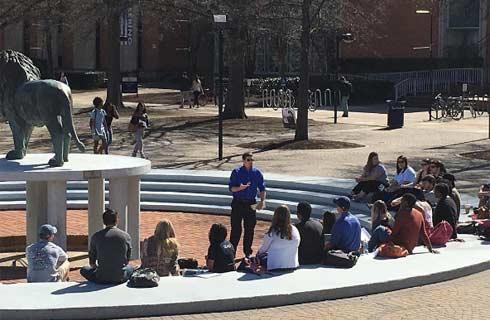国际学生入学条件
Undergraduate Preparation:
Applicants are expected to have a degree in physics or a related discipline from an accredited institution.
Standardized Tests:
Scores from the GRE General or Physics subject exam are not required to apply but will be considered if submitted. For example, Physics GRE scores can be useful in evaluating applicants with a non-standard path to graduate study in physics. All applications will receive full consideration whether GRE scores are submitted or not.
Transcripts
Applicants must upload unofficial transcripts of their entire post-secondary academic record to the online application, including all undergraduate- and graduate-level coursework. Applicants are expected to have achieved a minimum GPA of 3.0 in their undergraduate programs.
Statement of Purpose
The statement of purpose should indicate your reasons for applying to the proposed program at the University of Virginia and describe your preparation for this field of study, research interests, future career plans, and intellectual or life experiences in order to aid the admissions committee in evaluating your aptitude and motivation for graduate study. Your commitment to a selected field of study is presumed in the receipt of your application; instead, please discuss specific issues in the field that engage you. Please limit your submission to between 500 and 1,000 words.
The minimum score requirement for either the internet-based (iBT) TOEFL or the paper-based TOEFL is 90 (including sectional minimums of 22 in speaking, 22 in writing, 23 in reading and 23 in listening. Applicants may submit scores from the International English Language Testing System (IELTS) as an alternative to the TOEFL exam. The minimum IELTS score requirement is 7.0 in each section.
展开
IDP—雅思考试联合主办方

雅思考试总分
7.0
- 雅思总分:7
- 托福网考总分:90
- 托福笔试总分:600
- 其他语言考试:NA
CRICOS代码:
申请截止日期: 请与IDP联系 以获取详细信息。
课程简介
Condensed matter physics seeks to understand the striking new physical properties that may emerge when very large numbers of atoms or molecules organize into solids or liquids. Research in this area has led to fundamental breakthroughs in our understanding of metals, semiconductors and superconductors, as well as to the inventions of the transistor, diode laser, and integrated circuit. Condensed matter physics thus comprises the technological underpinning for the entire modern computer and communications industry. For these reasons, worldwide, this branch of physics commands the largest number of researchers, who work in academic institutions, major industrial and government laboratories, and small entrepreneurial enterprises. The problems addressed by condensed matter physicists are often interdiscplinary in nature, affecting a number of other scientific fields including chemistry, biology, electrical engineering, and materials science. The University of Virginia maintains a diverse and vigorous research program in both experimental and theoretical condensed matter physics. Students admitted to the Ph.D. program are supported financially either by teaching and research assistantships or fellowships. Research leading to the dissertation can be carried out not only within the Department of Physics, but, with appropriate arrangements, either partly or entirely at other locations. Recent dissertation research has been carried out at various national laboratories across the globe, such as the NIST Center for Neutron Research, Jefferson Lab, Fermilab, CERN, and the Paul Scherrer Institute.
展开







 预科
预科 奖学金
奖学金 实习机会
实习机会 在校学习
在校学习 跨境学习
跨境学习 校园授课-线上开始
校园授课-线上开始 在线/远程学习
在线/远程学习














 滑铁卢大学
滑铁卢大学

 滑铁卢大学
滑铁卢大学

 滑铁卢大学
滑铁卢大学

 滑铁卢大学
滑铁卢大学

 滑铁卢大学
滑铁卢大学

 劳伦森大学
劳伦森大学









 美国
美国